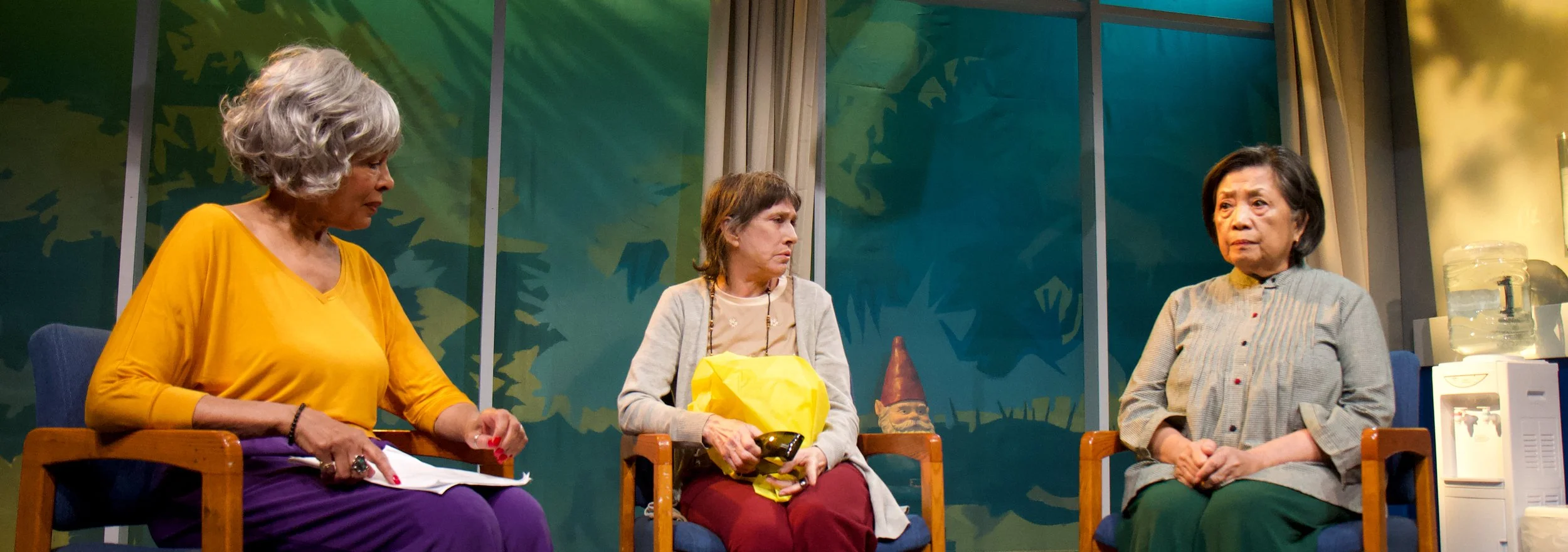Peggy Stafford’s Everything Is Here explores the later stage of the life cycle—what some call the golden years, and others call the twilight years—by focusing on three women in their 70s: Bev (Jan Leslie Harding), Bonnie (Petronia Paley) and Janice (Mia Katigbak). Living in senior housing, they find their days are punctuated by the visiting nurse, Nikki (Suzannah Millonzi), who has a sadness beneath her cheerful demeanor, and the lanky and handsome Grant (Pete Simpson), who leads meditation and mindfulness classes at the home while he auditions for acting roles.

Titles, even subtitles, sway playgoers’ expectations. Take, for instance, a recent press performance of Laowang: A Chinatown King Lear. Alex Lin’s new farcical melodrama zips relentlessly around jocose hairpin turns. The dialogue, stylishly delivered by a first-rate cast, is witty, urbane, and frequently arch. Yet the audience—presumably anticipating King Lear or something akin to that monumental tragedy—sat in suspended, churchlike repose throughout the play’s early scenes.

Playwright Scott Organ excels at creating characters whose mistakes in their jobs and relationships lead to agonizing consequences. His 2020 drama, 17 Minutes, was a harrowing tale of a sheriff’s deputy in a crumbling marriage who failed to stop a mass shooting. For his new work, Diversion, Organ reunites with director Seth Barrish and the Barrow Group to focus on a close-knit nursing unit on the verge of unraveling. This quiet and absorbing think piece examines the hardship of opioid addiction and the post-traumatic stress of the COVID-19 pandemic.

Set in New York City—specifically Times Square and Ozone Park, Queens—The Surgeon and Her Daughters presents a powerful story of seemingly unrelated people whose lives are upended as they struggle with insecurity and grief. Chris Gabo’s script artfully follows characters who struggle, deceive, fight, joke, and hope while reckoning with what their lives have become. Director Adrienne Campbell-Holt skillfully guides the production for maximum cathartic effect.

Two different views of immigration and assimilation hold sway in Talene Monahon’s Meet the Cartozians. Directed and expertly cast by David Cromer, the first half of Monahon’s play finds a naturalized Armenian American defending his citizenship in a landmark court case in 1925. In the second part, set a century later, the Armenian community has both thrived and splintered.

